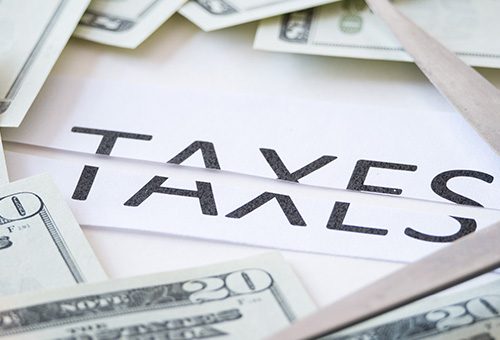
INDIANA – The Indiana Department of Revenue (DOR) wants individuals to be aware of several tax changes as the 2023 tax filing season approaches. In addition, DOR wants to remind low-income Hoosiers who received Social Security income in 2022 and who meet other eligibility criteria that they will need to file a tax return to claim the $200 Automatic Taxpayer Refund, even if they do not normally need to file a tax return.
Major changes for this upcoming individual income tax filing season include:
- Earned Income Credit Rate Change
- The earned income credit (EIC) is a tax credit for certain people who work and have earned income under a threshold set by the IRS. The Indiana income tax credit rate is increasing from 9% to 10% of the federal EIC. There are some differences between the Indiana and the federal credit, most notably for married individuals filing jointly and individuals with three or more qualifying children. Refer to IRS Publication 596 or State Publication 359, Indiana Earned Income Credit 2022, for more information.
- Adoption Credits
- Indiana’s adoption tax credit increases to 20% of the federal adoption credit (up from 10%) or $2,500 (up from $1,000), whichever is less. If the credit is claimed for multiple eligible children, the credit and limitation is computed separately for each child.
- No more than $2,500 in credits may be claimed for each eligible child if credits are claimed over multiple years.
- Credits for tax years 2022 and later are refundable.
- Parents who claimed the federal adoption credit for 2015 through 2021 may claim a non-refundable credit for the year(s) they claimed a federal credit.
- New Schedule IN-W
- Hoosiers with more than one wage statement, such as a W-2 or Form 1099, will need to list all wage statements on a new form, Schedule IN-W. DOR-certified software vendors should include this form in their products. Paper filers will need to include the new form, along with other required forms and schedules, with their tax return.
- Automatic Taxpayer Refunds
- Hoosiers may claim a $200 Automatic Taxpayer Refund as a tax credit if they:
- were not eligible for last year’s initial Automatic Taxpayer Refund; and
- received Social Security benefits in 2022; and
- are not claimed as a dependent on someone else’s tax return.
- To receive the $200 refund, they must file an Indiana resident tax return by Dec. 31, 2023, and claim the $200 ATR as a refundable tax credit.
- Hoosiers who do not normally file a tax return due to their income will need to file a tax return to claim the ATR as a credit.
- Information on how to claim the $200 ATR as a credit will be included in the 2022 tax year instruction booklets and included in DOR-certified tax software products.
- Eligible Hoosiers can claim the $200 ATR using Form IT-40 or IT-40PNR (for part-year residents).
- Those who qualify to use Form SC-40 may be able to claim both the Unified Tax Credit for the Elderly and the ATR if they meet specific age and income requirements. Refer to the information on the back of Form SC-40 for more information.
- Hoosiers may claim a $200 Automatic Taxpayer Refund as a tax credit if they:
Indiana Individual Income Tax forms for 2022 are now available on DOR’s website. DOR will start accepting Indiana Individual Income Tax returns in January 2023 in concert with the IRS. DOR reminds customers not to file their state tax returns before tax filing season opens and they have gathered all necessary documentation. Attempting to file without all documents can delay the process and ultimately postpone any refund a customer may receive.
DOR also encourages customers to utilize electronic filing, online payment, and direct deposit to significantly improve the quality and speed of return and refund processing.



